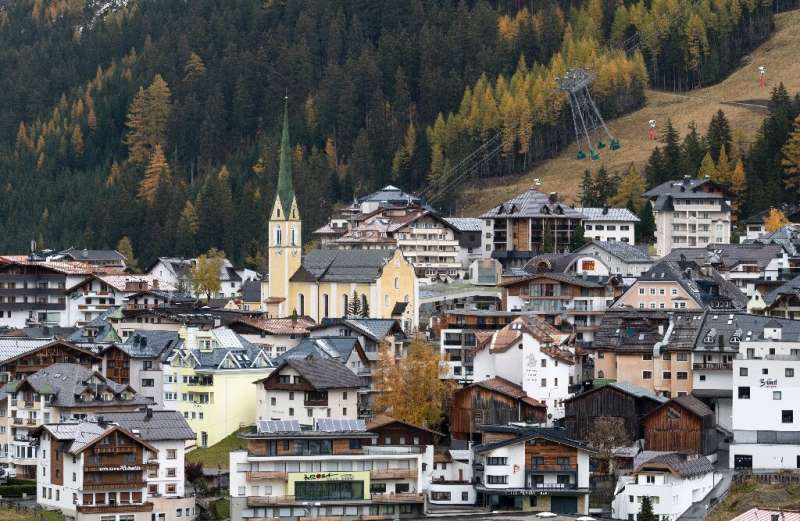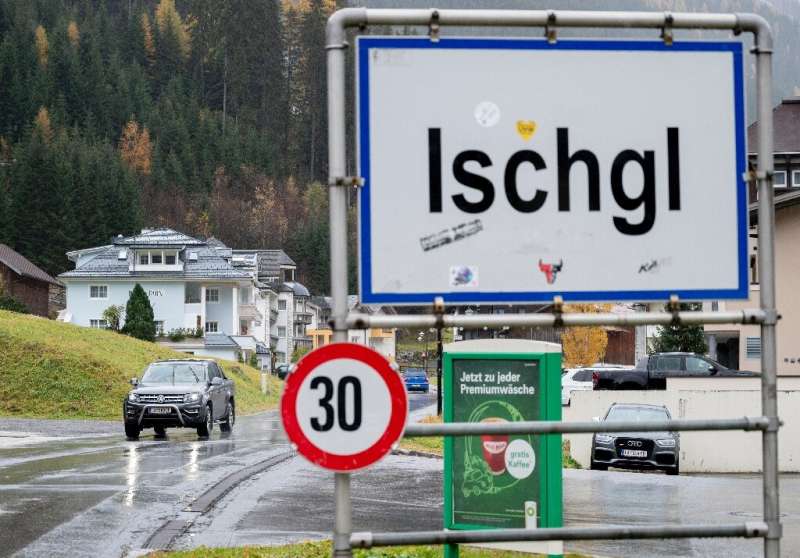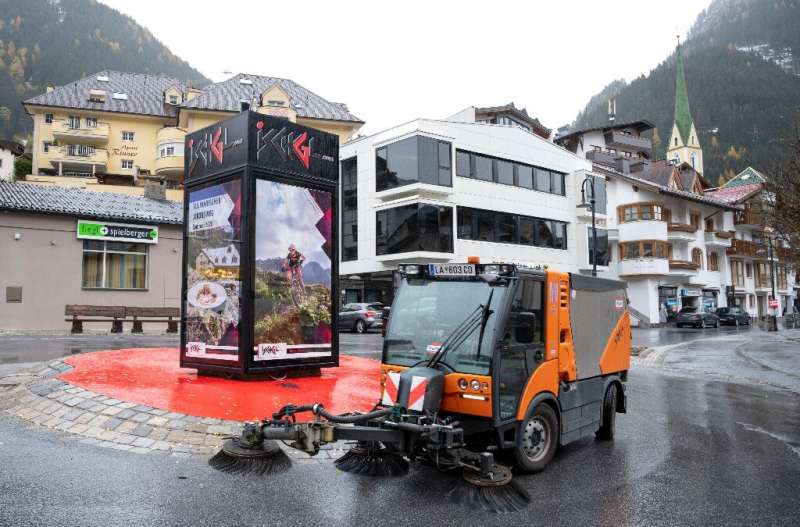The Austrian ski resort of Ischgl was one of Europe's coronavirus hotspots last year
The last time Sieglinde Schopf hugged Hannes, her husband of almost 50 years, was before he boarded a train to go skiing in Austria's popular Alpine province of Tyrol last March.
A few weeks later, in April, the 72-year-old, infected with coronavirus, died alone, hooked up to a hospital bed.
"My entire world shattered into pieces," says Schopf, who had convinced her husband to go to Ischgl, which ended up becoming one of Europe's coronavirus hotspots last year.
"I can't forgive myself, because in the end, I sent him to his death."
Now a year later, hers is one of 10 lawsuits filed by plaintiffs from Austria and Germany who seek compensation, alleging that Austrian authorities failed to respond quickly enough to coronavirus outbreaks in Ischgl and other resorts.
More than 6,000 people from 45 countries claim they got infected—the majority of them in Ischgl—where unwitting tourists continued to ski, drink and party, while the virus was spreading, according to Austrian consumer rights association VSV, which is collecting the complaints.
'Broad spectrum' of suits
Schopf believes that her husband, a retired journalist and avid skier since his childhood, caught the virus during the panicked evacuation by bus, crammed with other tourists who were sneezing and coughing for three hours.
When the Austrian called her husband on March 13 to tell him that Chancellor Sebastian Kurz had just announced a quarantine for Ischgl, "they were still on the ski slopes," she told AFP.
Ten lawsuits have been filed by plaintiffs who seek compensation, alleging that Austrian authorities failed to respond quickly enough to coronavirus outbreaks in Ischgl and other resorts
The widow is now suing the Republic of Austria for 100,000 euros ($120,000) over her husband's death.
Others are seeking tens of thousands of euros in compensation over contracting the virus in the ski resorts.
The cases are expected to be heard from September with initial April trial dates postponed due to the latest COVID-19 lockdown, according to VSV.
Other lawsuits are also in the pipeline, including by plaintiffs from Belgium, the Netherlands, the UK and Switzerland, VSV head Peter Kolba told AFP.
"It's a very broad spectrum, from deaths to cases of long COVID" with permanent lung damage, Kolba said.
Of the 6,000 who complained to VSV of having contracted the virus, five percent suffer from symptoms of long COVID, including headaches, sleep disturbance and shortness of breath. In total, 32 people have died.
An independent commission of experts tasked with investigating the outbreak wrote in its report published in October that local officials "reacted too late" and made "serious miscalculations" after authorities in Iceland alerted them on March 5 that several people tested positive upon returning to the island state.
From March 8, the day after a barkeeper in Ischgl tested positive for COVID-19, "a correct assessment should have led to the closing of bars, the stopping of ski lifts and orderly management of departures" of tourists from Ischgl, the report said.
Instead, skiing and partying continued until March 13.
Ischgl which lives almost entirely off tourism hopes to fill its hotels and restaurants over the upcoming summer
Authorities have denied that they acted too slow.
Four officials, including Ischgl Mayor Werner Kurz, are under investigation by the public prosecutor's office in Tyrol's capital, Innsbruck, in relation to the outbreak.
Lesson 'learned'
Restoring Ischgl's reputation has since been paramount to Andreas Steibl, the head of the local tourism association, which the independent investigation absolved of blame over last year's outbreak.
"For us, the number one priority now is health, because we have learned from last year's experience," Steibl told AFP.
An official with the regional health authority confirmed that Ischgl had "practically no cases" of COVID-19 since the lockdown a year ago.
With the winter season lost to the pandemic, the village of some 1,500 inhabitants which lives almost entirely off tourism hopes to fill its hotels and restaurants over the upcoming summer.
Last year, tourists from across Europe already flocked to the Austrian Alps—many choosing this over flying to the usual Greek or Spanish island destinations.
One couple in their 80s, the Kaisers, who travelled by tour bus from Leipzig, Germany, last July, recounted how their friends had called them "crazy" for booking their summer vacation in Ischgl.
But Manfred Kaiser, 84, said they felt especially safe in Ischgl because "everyone here is careful now".
© 2021 AFP
























